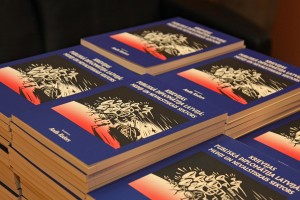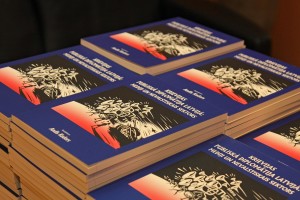
The latest research work “Russian Public Diplomacy in Latvia: the Mass Media and Non-Governmental Sector”, presented today by the Centre for East European Policy Studies, concludes that nearly all instruments of Russian public diplomacy lead to confrontation in domestic or foreign policy.
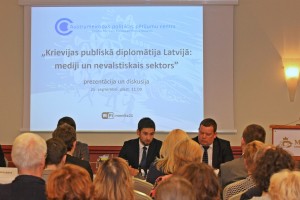
The research paper includes analysis of the concept of public diplomacy, its development, and Russia’s specific interpretation of public diplomacy. Timeliness of the research work is connected with the necessity to reassess the instruments of Russian public diplomacy – the use of the mass media, issue of Russian compatriots, cultural diplomacy, history and religion issues in foreign policy.
The research authors conclude – implementation of Russian public diplomacy in Latvia demonstrates that several its dimensions – media messages, discussion of the language and citizenship themes, popularizing the specific historical interpretations – cause split in Latvia society and add to tension in it, not favouring good relationship with Russia.
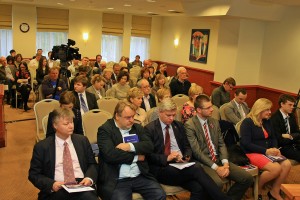
The researchers indicate that the tendencies of the last years have been related to a rapid development of public diplomacy on a broad scale, for an increasing number of countries tend to include it in the set of means of their foreign diplomacy. Simultaneously, that has lead to distortion of the concept of public diplomacy, because there exist countries which, while using the flag of public diplomacy, in reality conduct information campaigns and propaganda – the practice which is not compatible with democratic countries’ understanding of public diplomacy.
Practical implementation of Russian public diplomacy shows that Russia attempts to use the approach, criticized by itself, calling it inacceptable one. Performed by Russia, public diplomacy is related to propaganda and withholding the real foreign policy objectives. Russian compatriots residing abroad are the significant target group of this country’s public diplomacy, and simultaneously they are also the instrument for achieving the objective.
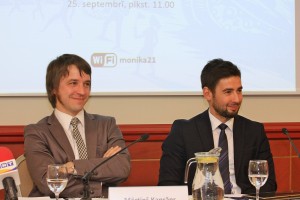
According to one of the authors of the research work Mārtiņš Kaprāns, the researcher at University of Latvia Institute of Philosophy and Sociology, Russian mass media have cultivated the oppositionist awareness of belonging to the diaspora in Latvia’s Russian speaking part of population. That is, Russian community is positioned as an independent and isolated from Latvian people political actor. The research paper editor, CEEPS Executive Director and researcher Andis Kudors stresses that such Russian media interpretation can cause only split, not promote consolidation, thereby hampering normal democratic development of Latvia as the national state. He also indicates that, while implemented practically, Russian policy toward its compatriots turns from support for maintaining the Russian ethnic identity to political demands, triggering disputes and confrontation in the countries of residence of Russian compatriots. Kudors mentions the significant fact that in Ukraine, the issue of Russian compatriots discriminating was used as the pretext for Russia’s invading the Crimea where the compatriots’ NGOs had been making the mentioned problems urgent for a long period of time.
Political scientist Artūrs Kvesko draws attention to the legal norms regulating NGOs activities in Latvia. Kvesko explains that this sphere has not been sufficiently developed, and Russian compatriots’ NGOs are using this situation for their own benefit by both operating without registration and not always stating their financial sources, for the legal norms presently in force do not require that strictly. The political scientist indicates that the State of Latvia, within its public diplomacy, should intensify its communication with the Russian compatriots’ NGOs and explain its interests and priorities, and a possibility to support them should be considered, otherwise Russia may monopolize this sphere – recently it has been making such attempts.
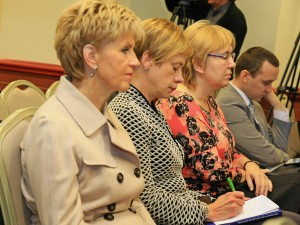
The research authors stress that Russia’s aggression against Ukraine has influenced also the development of the notion of Russian World. If prior to the conflict in Ukraine, Russian World was considered as a soft power project, increasing its attractiveness, then after annexation the Crimea, the meaning of this conception has changed. Consolidation of Russian World now is used as an excuse for military aggression. The researchers draw attention to the fact that the Baltic countries are situated on the frontline of information influence, thereby the Western allies should provide their assistance which may be granted in the form of financial aid or technical support for Latvian and other Baltic states’ mass media.
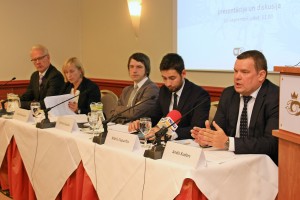
The group of the research work authors includes CEEPS researchers Andis Kudors, Māris Cepurītis, Ainārs Lerhis, Rinalds Gulbis, communication specialists Mārtiņš Kaprāns and Anda Rožukalne, political scientist Artūrs Kvesko, theologian Valdis Tēraudkalns and international issues’ expert Alexei Grigoryev.
The full text of the research and its conclusions at the moment are available only in Latvian at the research section of our web page www.easteurope.lv.
